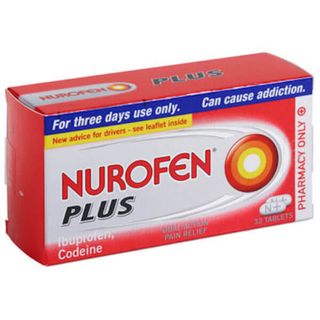
Cold & Flu
Coming down with a cold or flu can make you feel really rubbish. The runny nose, sore head, cough, body aches and constant tiredness can leave you feeling drained and desperate to crawl into bed. While you can’t cure a cold and flu, there are plenty of effective over-the-counter remedies to make you feel a bit more comfortable while your body fights off the bug. From decongestants to painkillers that ease body aches we’re here to help. Just tell us how you’re feeling and we’ll find the right treatment to get you back on your feet.
Cold & Flu Treatments
- Best seller
 Nurofen Plus Tablets£5.00283 reviews
Nurofen Plus Tablets£5.00283 reviews - Best seller
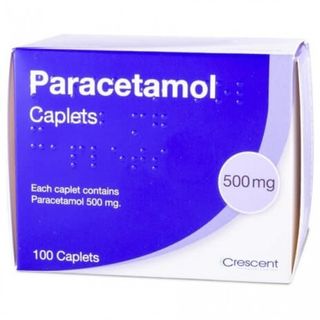
Paracetamol
Paracetamolfrom£0.52398 reviews 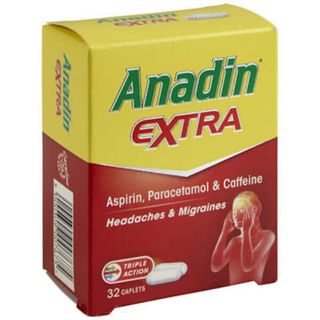
Anadin Extra Tablets
Anadin Extra Tablets£3.75100 reviews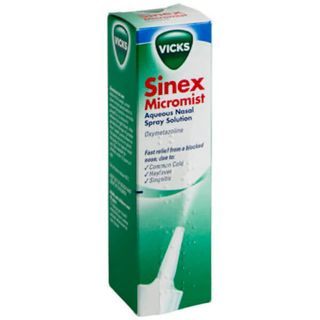
Vicks Sinex Nasal Sprays
Vicks Sinex Nasal Spraysfrom£3.398 reviews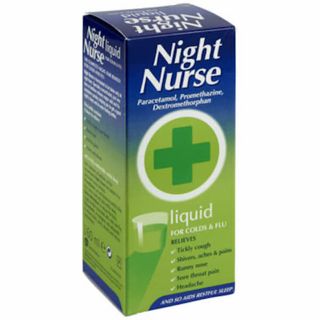
Night Nurse
Night Nursefrom£3.19152 reviews- Best seller
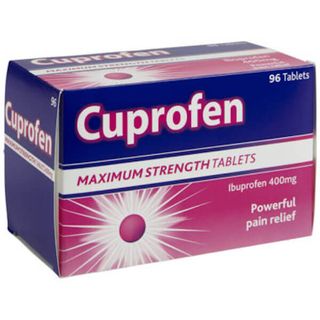
Cuprofen
Cuprofen£6.99345 reviews - Best seller
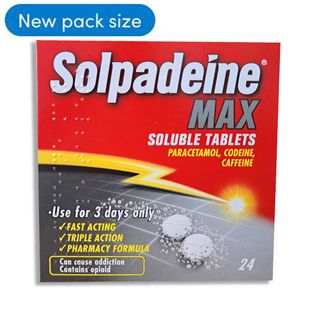
Solpadeine Max
Solpadeine Maxfrom£6.85863 reviews 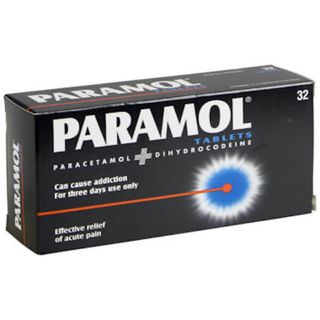
Paramol Tablets
Paramol Tablets£6.49282 reviews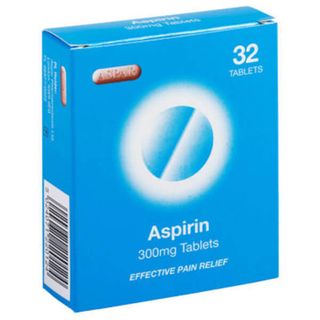
Aspirin
Aspirin 300mg Tablets & Dispersible Tabletsfrom£0.3942 reviews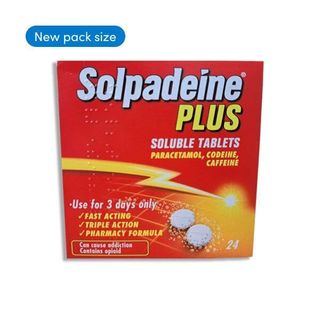
Solpadeine Plus Soluble Tablets (24)
Solpadeine Plus Soluble Tablets (24)£5.49421 reviews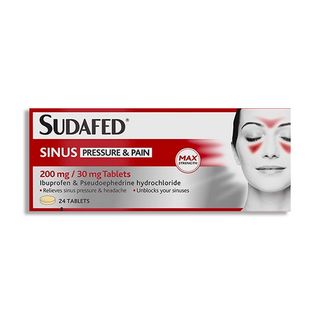
Sudafed Sinus Pressure & Pain Tablets
Sudafed Sinus Pressure & Pain Tablets£4.9114 reviews![Day & Night Nurse Capsules [Discontinues]](https://cdn.sanity.io/images/g0l5nn1c/staging/837f7e7cb9b91be023012b055d4f6192557ef68f-600x600.jpg?w=320&h=320&fit=clip)
Day & Night Nurse Capsules [Discontinues]
Day & Night Nurse Capsules [Discontinues]£4.723 reviews![Day Nurse Capsules[Discontinued]](https://cdn.sanity.io/images/g0l5nn1c/staging/9228bf4923b0064bdd4680c2c0ed233df054c905-600x600.jpg?w=320&h=320&fit=clip)
Day Nurse Capsules[Discontinued]
Day Nurse Capsules[Discontinued]£4.282 reviews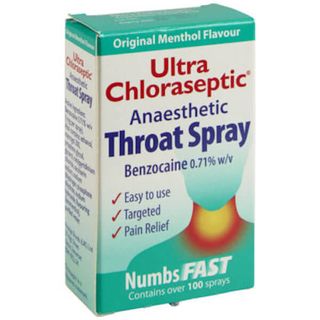
Ultra Chloraseptic Spray
Ultra Chloraseptic Sprayfrom£5.093 reviews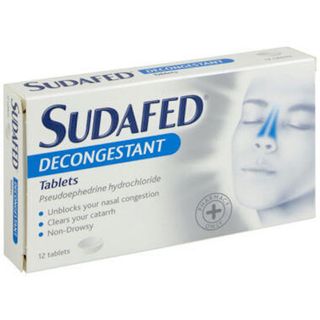
Sudafed Decongestant Tablets
Sudafed Decongestant Tablets£3.0933 reviews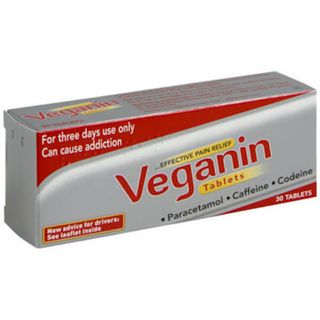
Veganin Tablets
Veganin Tablets£4.3957 reviews- Out Of Stock
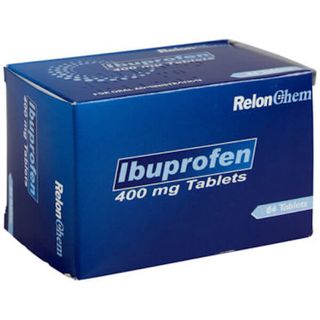
Ibuprofen 400mg Tablets
Ibuprofen 400mg Tablets£5.60228 reviews - Out Of Stock
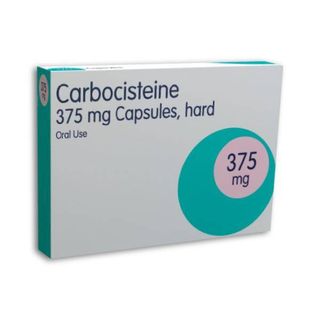
Carbocisteine
Carbocisteine - Out Of Stock
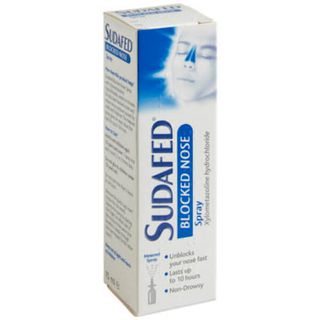
Sudafed Blocked Nose Spray
Sudafed Blocked Nose Spray£3.4018 reviews - Out Of Stock
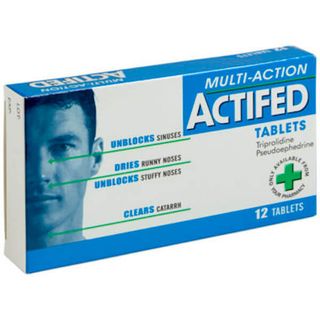
Actifed Multi Action Tablets
Actifed Multi Action Tablets24 reviews - Out Of Stock
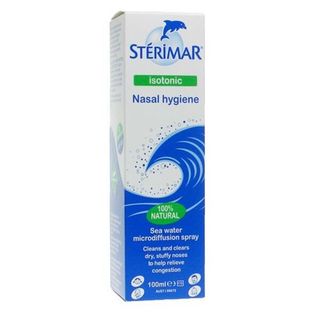
Sterimar Isotonic Nasal Spray
Sterimar Isotonic Nasal Spray - Out Of Stock
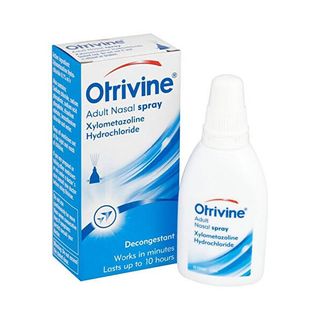
Otrivine Nasal Spray
Otrivine Adult Nasal Spray - Out Of Stock
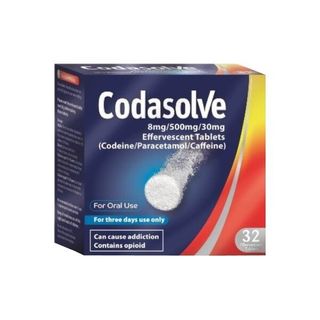
Codasolve Effervescent Tablets
Codasolve Effervescent Tablets - Out Of Stock
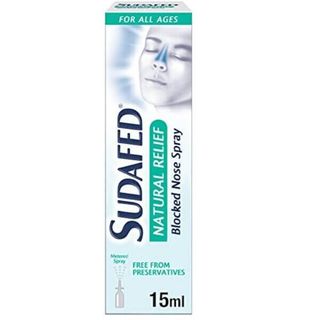
Sudafed Nose Spray
Sudafed Natural Relief Blocked Nose Spray - Out Of Stock
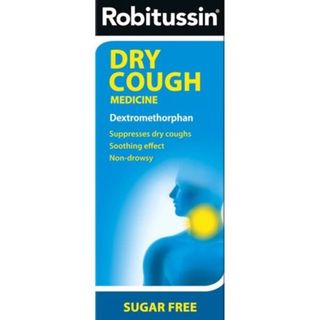
Robitussin Dry Cough Medicine
Robitussin Dry Cough Medicine - Out Of Stock
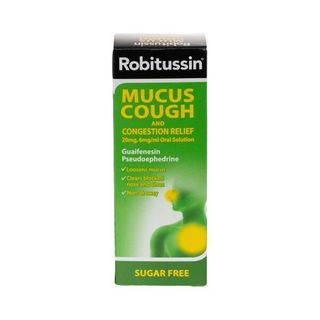
Robitussin Mucus Cough and Congestion Relief
Robitussin Mucus Cough and Congestion Relief - Out Of Stock
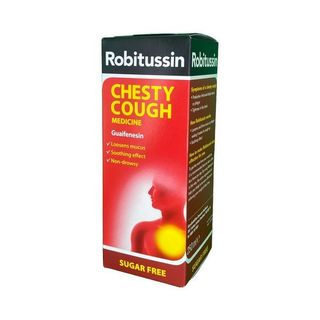
Robitussin Chesty Cough Medicine
Robitussin Chesty Cough Medicine - Out Of Stock
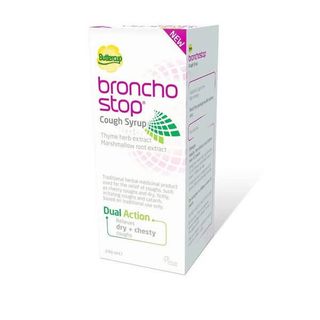
Broncho Stop Cough Syrup
Broncho Stop Cough Syrup - Out Of Stock
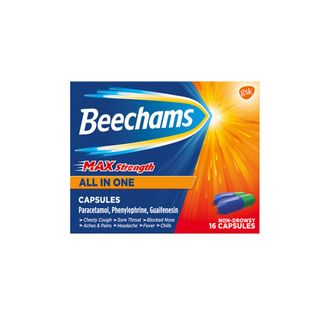
Beechams Max Strength All In One Capsules
Beechams Max Strength All In One Capsules - Out Of Stock
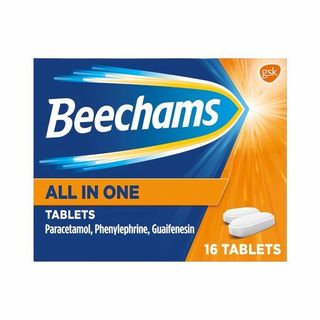
Beechams All in One Cold and Flu Tablets
Beechams All in One Cold and Flu Tablets - Out Of Stock
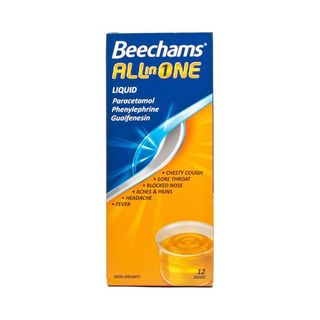
Beechams All In One Liquid
Beechams All In One Liquid - Out Of Stock
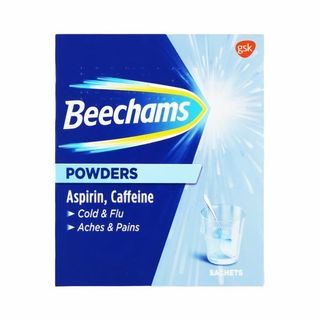
Beechams Powders Sachets
Beechams Powders Sachets - Out Of Stock
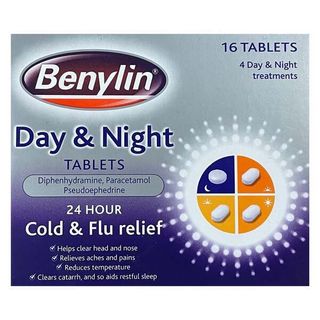
Benylin Day & Night Tablets
Benylin Day & Night Tablets - Out Of Stock
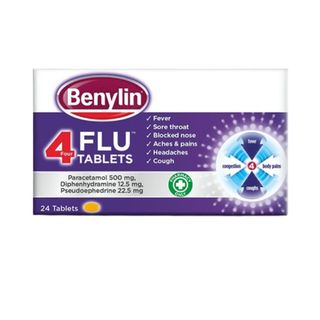
Benylin 4flu Tablets
Benylin 4flu Tablets - Out Of Stock
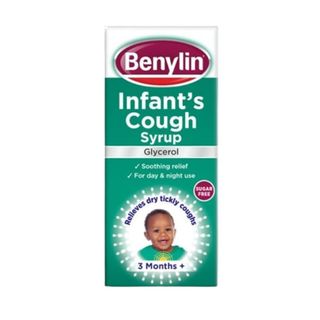
Benylin Infants Chesty Cough Syrup
Benylin Infants Chesty Cough Syrup - Out Of Stock
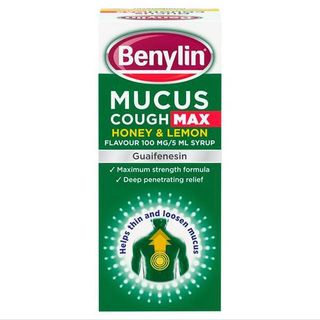
Benylin Mucus Cough Max Syrup (Honey & Lemon)
Benylin Mucus Cough Max Syrup (Honey & Lemon) - Out Of Stock
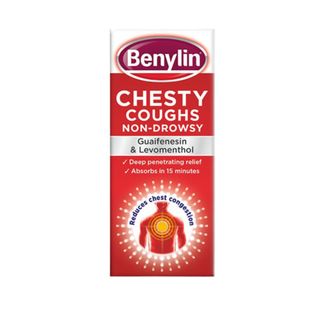
Benylin Chesty Coughs Non-Drowsy
Benylin Chesty Coughs Non-Drowsy - Out Of Stock
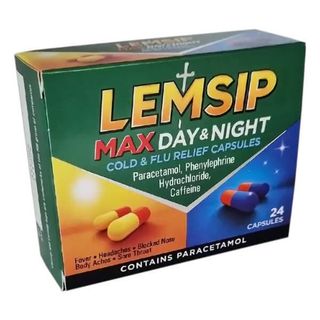
Lemsip Max Day & Night Cold & Flu Relief Capsules
Lemsip Max Day & Night Cold & Flu Relief Capsules - Out Of Stock
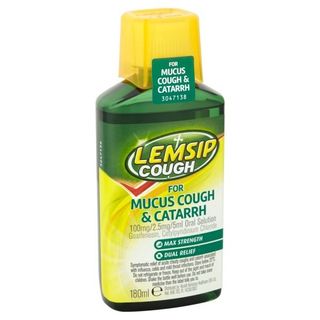
Lemsip Cough For Mucus Cough & Catarrh Oral Solution
Lemsip Cough For Mucus Cough & Catarrh Oral Solution - Out Of Stock
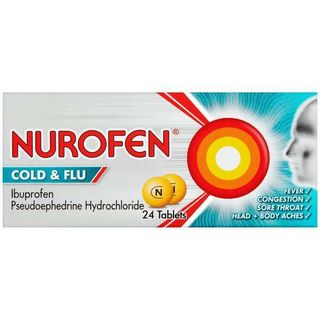
Nurofen Cold & Flu Tablets
Nurofen Cold & Flu Tablets - Out Of Stock
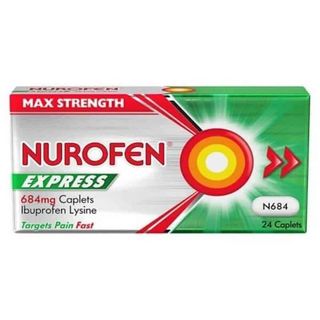
Nurofen Express Caplets
Nurofen Express Caplets - Out Of Stock
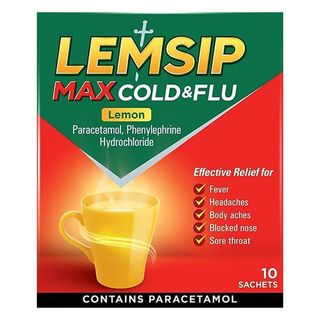
Lemsip Max Cold and Flu Relief Sachets
Lemsip Max Cold and Flu Relief Sachets - Out Of Stock
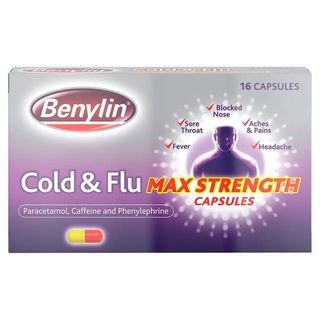
Benylin Cold & Flu Max Strength Capsules
Benylin Cold & Flu Max Strength Capsules - Out Of Stock
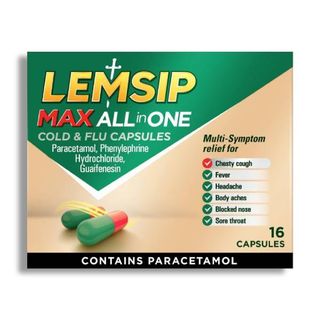
Lemsip Max All in One Cold & Flu Capsules
Lemsip Max All in One Cold & Flu Capsules - Out Of Stock
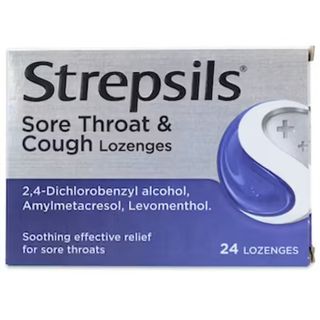
Strepsils Sore Throat & Cough Lozenges
Strepsils Sore Throat & Cough Lozenges - Out Of Stock
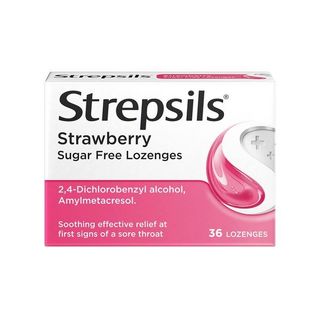
Strepsils Strawberry Sugar-Free Lozenges
Strepsils Strawberry Sugar-Free Lozenges - Out Of Stock
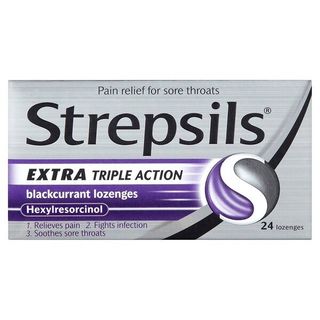
Strepsils Extra Strength Blackcurrant Lozenges
Strepsils Extra Strength Blackcurrant - Out Of Stock
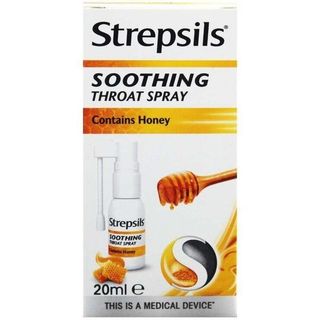
Strepsils Soothing Throat Spray
Strepsils Soothing Throat Spray - Out Of Stock
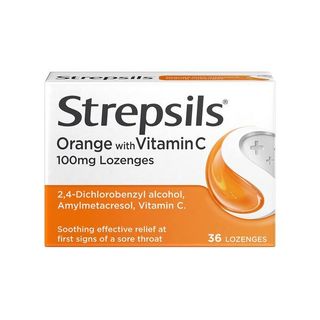
Strepsils Orange with Vitamin C (100mg) Lozenges
Strepsils Orange with Vitamin C (100mg) Lozenges - Out Of Stock
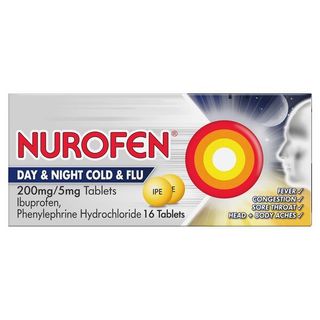
Nurofen Day & Night Cold & Flu Tablets
Nurofen Day & Night Cold & Flu Tablets - Out Of Stock
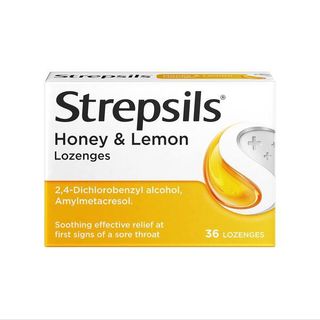
Strepsils Honey & Lemon Lozenges
Strepsils Honey & Lemon Lozenges - Out Of Stock
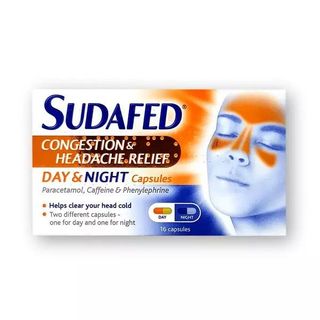
Sudafed Congestion & Headache Relief Day & Night Capsules
Sudafed Congestion & Headache Relief Day & Night Capsules - Out Of Stock
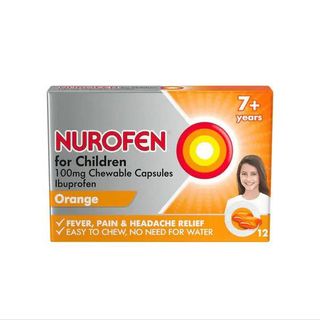
Nurofen for Children 100mg Chewable Capsules Orange
Nurofen for Children 100mg Chewable Capsules Orange - Out Of Stock
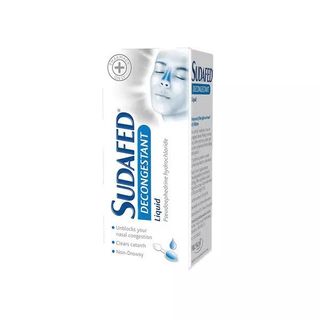
Sudafed Decongestant Liquid
Sudafed Decongestant Liquid - Out Of Stock
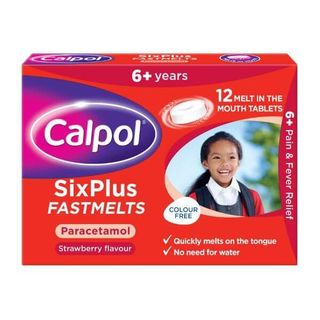
Calpol SixPlus Fastmelts
Calpol SixPlus Fastmelts - Out Of Stock
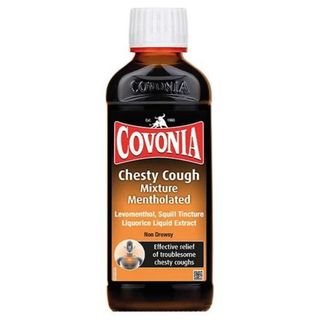
Covonia Chesty Cough Mixture
Covonia Chesty Cough Mixture - Out Of Stock
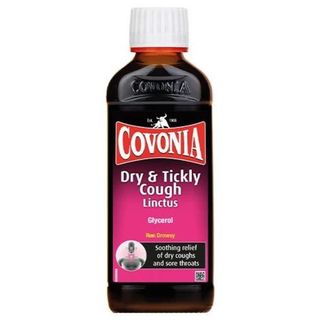
Covonia Dry & Tickly Cough Linctus
Covonia Dry & Tickly Cough Linctus - Out Of Stock
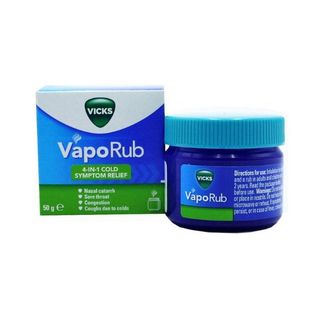
Vicks VapoRub
Vicks VapoRub - Out Of Stock
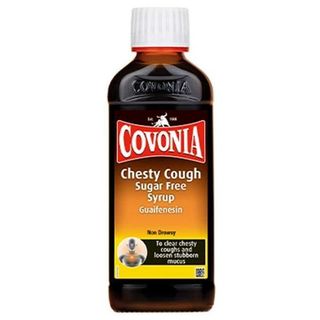
Covonia Chesty Cough Sugar Free Syrup
Covonia Chesty Cough Sugar Free Syrup - Out Of Stock
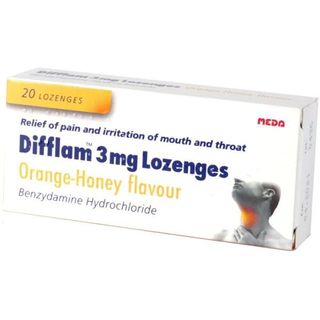
Difflam 3mg Lozenges Orange-Honey
Difflam 3mg Lozenges Orange-Honey - Out Of Stock
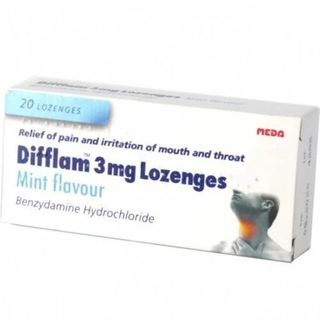
Difflam 3mg Lozenges Mint Flavour
Difflam 3mg Lozenges Mint Flavour - Out Of Stock

Tiger Balm White Ointment
Tiger Balm White Ointment - Out Of Stock
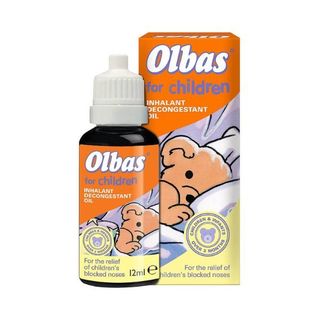
Olbas for Children Inhalant Decongestant Oil
Olbas for Children Inhalant Decongestant Oil - Out Of Stock
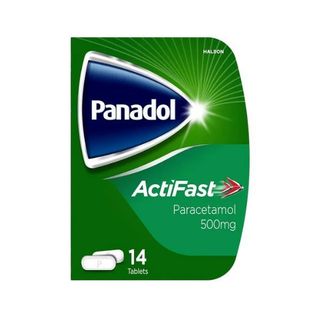
Panadol ActiFast
Panadol ActiFast - Out Of Stock
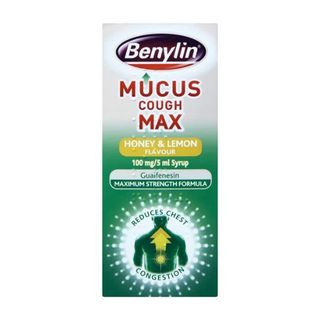
Benylin Mucus Cough Max Syrup Honey & Lemon 150ml
Benylin Mucus Cough Max Syrup Honey & Lemon 150ml - Out Of Stock
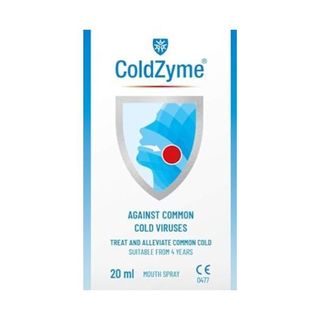
Coldzyme Mouth Spray 20ml
Coldzyme Mouth Spray 20ml - Out Of Stock
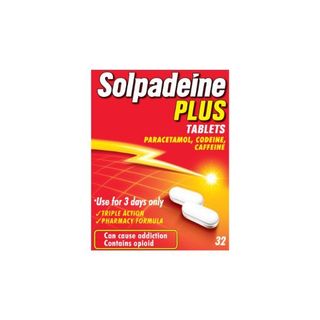
Solpadeine Plus Tablets (32)
Solpadeine Plus Tablets (32) - Out Of Stock
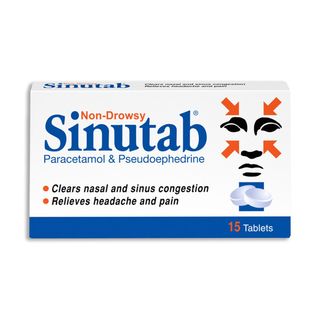
Sinutab Non-Drowsy Tablets
Sinutab Non-Drowsy Tablets - Out Of Stock
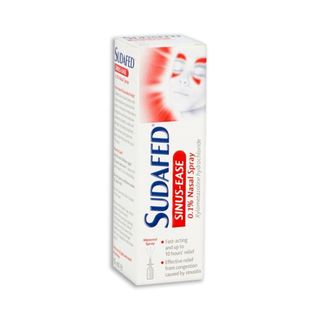
Sudafed Sinus-Ease 0.1% Nasal Spray 15ml
Sudafed Sinus-Ease 0.1% Nasal Spray 15ml - Out Of Stock
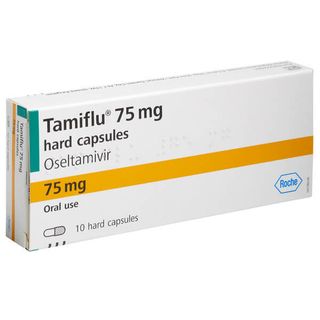
Tamiflu 75mg Capsules
Tamiflu 75mg Capsules16 reviews
View recommended products for Cold & Flu
Don't wait to get the medical help you need.
View our recommended treatments and select your preferred treatment and quantity from a list of options for you.
Selected by our UK-based medical team
Quick and easy checkout
Treatments dispatched same day (before 3pm)
Ordering as easy as 1, 2, 3
1. Find the ideal treatment
We can provide over 1099 leading medicines to treat over 94 conditions.
2. Get a free consultation
Our qualified healthcare professionals will assess your condition and needs.
3. Enjoy speedy delivery
And when the time comes to re-order, it'll only take a couple of clicks.
Advice for Cold & Flu
What is flu or influenza?
The flu is caused by the influenza virus and it affects the respiratory passages. It is highly contagious and causes a variety of symptoms including aching, a fever, a runny or blocked nose, and fatigue, and in some cases, it can develop into more serious illnesses including pneumonia or bronchiolitis.
There are products on the market such as Tamiflu which are designed to treat these symptoms, making them more bearable whilst simultaneously shortening the length of the illness by up to two days. It can also prevent you from catching the flu in contagious environments such as at work or school where transmission can be high.
What is the common cold?
The common cold is an illness comprising a collection of symptoms, including a runny nose, sneezing, coughing, a sore throat, and itchy eyes. The cold can affect people of all ages and is most common during the winter months. People with a suppressed immune system or allergies are at greater risk of getting the cold.
The common cold is very contagious, so it’s important to take basic steps to avoid contracting and spreading it. Avoid touching your nose when you have a cold as this can spread germs from your hands to your face, cover your mouth when you sneeze and wash your hands frequently. Antibiotics cannot cure a cold, but thankfully, there are a range of treatments available that can provide symptomatic relief.
What causes the flu?
Similar to the common cold, the flu virus travels through the air in droplets when someone with the infection coughs, sneezes or talks. You can inhale the droplets directly, or you can pick up the germs from an object — such as a phone or a computer keyboard — and then transfer them to your eyes, nose, or mouth.
People with the virus are likely contagious around one day before symptoms appear until about five days after they start. Children and people with weakened immune systems may be contagious for a slightly longer time.
Flu viruses are constantly changing, with new strains appearing regularly. If you've had the flu in the past, your body has already made antibodies to fight that specific strain of the virus.
If future flu viruses are similar to those you've encountered before, either by having the disease or by getting vaccinated, those antibodies may prevent infection or lessen its severity. However antibody levels may decline over time.
Also, antibodies against flu viruses you've encountered in the past may not protect you from new strains that can be very different viruses from what you had before.
What causes the common cold?
There are many different types of viruses that can lead to a cold. These include:
- Rhinoviruses (most common)
- Parainfluenza viruses (less common)
- Enteroviruses (very rare)
There are also a number of unknown virus strains that can cause you to become sick with a cold. Despite what many may believe, the cold weather doesn’t cause the common cold. However, you’re more likely to fall sick with a cold during the winter months — this is because:
- Schools are in session — this increases the risk of exposure to the virus
- People are more likely to shelter together indoors, giving the virus a perfect environment to spread.
- Low humidity can cause your nasal passages to dry up — this makes them more susceptible to cold viruses
What are the symptoms of flu?
Symptoms of the flu come on suddenly and may include:
- Fever or feeling feverish/chills
- Cough
- Sore throat
- Runny or stuffy nose
- Muscle or body aches
- Headaches
- Fatigue (tiredness)
Some people may also experience vomiting and diarrhoea although this is more common in children.
For most people, symptoms of the flu last for around 1 or 2 weeks, but in some cases can last for up to 1 month.
What are the symptoms of the common cold?
The symptoms of the common cold are less severe than the flu, and can include:
- A runny or blocked nose
- Sneezing
- A sore throat
- A cough
If you’re suffering from a cold, you may also have a mild fever — this is why many people confuse a cold with flu.
Flu symptoms normally develop very quickly, but the symptoms of a cold usually take one or two days to develop.
What is the difference between a cold and flu?
Sometimes, people have trouble working out whether they have a cold or the flu, because the common cold and flu share some similar symptoms such as a cough, runny nose, and a sore throat.
However, the two illnesses are not the same. Not only are they caused by different viruses, but the flu generally causes much more severe symptoms. Cold symptoms generally occur gradually and rarely cause fevers or headaches.
What is the difference between COVID-19 and flu?
Because some of the symptoms of flu and COVID-19 are similar, it may be hard to tell the difference between them based on symptoms alone, and getting tested may be needed to help confirm a diagnosis.
Flu and COVID-19 share many symptoms, but there are some key differences between the two.
- Body aches, headaches, and chills are common flu symptoms but are rarer in COVID-19 cases.
- Shortness of breath and respiratory issues are common COVID-19 symptoms that are rare in flu.
- flu symptoms usually appear suddenly whereas COVID-19 symptoms are more likely to develop over a longer period
- Other signs and symptoms of COVID-19, different from flu, may include a change in or loss of taste or smell.
It is important that if you are unsure whether you are suffering from a cold, flu, or COVID you get tested or call NHS 111 for further information.
What complications can flu cause?
If you are young and healthy, the flu usually isn't serious. Although you may feel miserable while you have it, the flu usually passes in a week or two with no long-term consequences.
Certain groups, however, may be more likely to develop health complications from the flu, these at-risk groups include:
- Adults 65 and older
- Pregnant women
- Children younger than 5
- People with certain chronic health conditions, such as asthma, diabetes, and heart disease.
- The flu can make existing health problems worse. For example, people with asthma may have asthma attacks while they have the flu.
In relatively rare circumstances people who catch the flu can also develop more serious health complications. Some of these complications include:
- Bronchitis
- Ear infection
- Sinus infection
- Pneumonia
- Inflammation of the heart (myocarditis), brain (encephalitis), or muscle tissues (myositis, rhabdomyolysis)
How is the flu diagnosed?
A number of flu tests are available to detect the influenza viruses from samples. The most common test is called “rapid influenza diagnostic tests (RIDTs)”. RIDTs work by detecting the parts of the virus (antigens) that stimulate an immune response. These tests can provide results within approximately 10-15 minutes but are not as accurate as other flu tests.
As these tests are difficult to access, most cases of the flu are made on what is called a ‘clinical’ diagnosis. Your doctor will do this by assessing your symptoms. If there is any doubt, your doctor can make sure that it's the flu by taking a throat swab and testing it for the virus. This is rarely needed. If you have had the flu before you may be aware of the symptoms yourself and can determine if you need treatment.
How is the flu treated?
Most people with the flu recover on their own without the need for medical care and can manage symptoms with over-the-counter medicines. People with mild cases of the flu should stay home and avoid contact with others, except to get medical care.
But if you have symptoms of flu and are in a high-risk group or are very sick or worried about your illness, contact your healthcare provider. You might need antiviral medicines to treat your flu such as Tamiflu.
Antiviral medicines such as Tamiflu can make the illness milder and shorten the time you are sick. They also can prevent serious flu complications. They usually work best when you start taking them within 2 days of getting sick.
Over-the-counter medication for flu and the common cold
OTC medications won’t shorten the length of time you are affected by the flu or a cold, but they can help reduce your symptoms.
Pain killers
OTC painkillers can reduce headaches, back and muscle pain that often accompanies the flu. Painkillers such as paracetamol and ibuprofen can also be used to help bring down a fever or high temperature, which will help you feel more comfortable. Aspirin can also be taken by some people to help control aches and pains. If you’re suffering from a sore throat, an ultra chloraseptic spray can help to numb the pain, too.
Cough suppressants
Certain types of cough medicine can help to reduce your body’s cough reflex — these are known as cough suppressants. They’re useful in controlling dry coughs without mucus and can make you feel more comfortable if you find the flu is causing you to cough a lot. Pholcodine Linctus can be bought online. For a productive, chesty cough, it may be necessary to seek out expectorant medication.
Decongestants
Decongestants can help to relieve a runny, stuffy nose caused by the flu. Some decongestants found in OTC flu medications include pseudoephedrine (in Sudafed) — these should not be taken by people with high blood pressure. Decongestant sprays are available too, such as Vicks Sinex and Sudafed Blocked Nose Spray.
Combination medications
Many OTC cold and flu medications combine two or more classes of drugs, most commonly a pain killer, a decongestant, and a sedating antihistamine to help you get a restful night's sleep. This helps them treat a variety of symptoms at the same time and therefore makes them a very popular choice. Example medication includes:
- Actifed Multi-Action Tablets
- Day & Night Nurse Capsules
- Sudafed Sinus Pressure and Pain Relief
Can flu be prevented?
Personal hygiene
One of the simplest and most effective ways of helping to reduce the spread of diseases including the flu is to practice good personal hygiene habits like covering your mouth when you cough, washing your hands and surfaces in your home often, and binning used tissues quickly after use.
Flu vaccination
The best way to avoid contracting the flu is to get the annual flu vaccine. The flu vaccine can help reduce your risk of contracting the flu and its severity, lowering your chances of experiencing serious flu symptoms and needing to stay in the hospital.
Certain people are more likely to develop serious complications of flu, such as pneumonia and bronchitis, and are therefore eligible for a free flu vaccine on the NHS once a year. You are eligible for the free vaccine if you are over the age of 65, pregnant, living in a long-stay residential care home, receive a carer’s allowance or have certain medical conditions. The vaccine is also free for children of certain ages. You can find out if you are eligible for a free flu vaccine and can book this on the NHS website.
Flu vaccine and COVID-19
It is especially important to accept the flu vaccination this winter season because the flu and COVID-19 cause similar symptoms. Having your flu vaccination could reduce symptoms that might be confused with those caused by COVID-19.
Preventing cases of the flu and reducing the severity of flu symptoms should also lessen the number of people needing to stay in the hospital.
Preventing flu with tamiflu
If you are considered to be high-risk and are concerned you may have come into contact with someone currently infected by flu. You may be able to prevent yourself from contracting the flu by taking Tamiflu Capsules.
Researchers have found that taking Tamiflu within 48 hours of the onset of symptoms can reduce the duration and severity of the symptoms. Tamiflu works by interfering with the proteins the flu virus uses to reproduce, giving your immune system time to destroy it.
Tamiflu is only available from The Independent Pharmacy when you complete an online health consultation. This is quick and easy to do. If you are concerned about the risk of flu you should speak to a health professional for advice.
Guides for Cold & Flu
Freshers’ Flu: What It Is & How To Treat It
We've written 1
more guides
for Cold & Flu
We also offer health & advice tailored to you.

